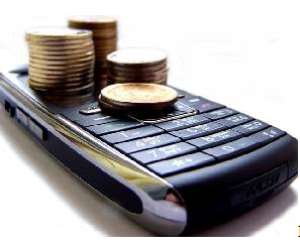
Ghana’s telecommunication industry originally meant to promote communication between people in Ghana and abroad has now assumed an added value to the benefit of the people. Of late the popular brands of MTN, Tigo, Airtel and Vodafone have been licensed by the Bank of Ghana to provide swift and smooth transfer of monies to people within the country. Many people who tried using the services of the Telcos to transact financial businesses have not regretted doing so.
In fact the use of the telcos in transferring cash across towns within the country has reduced the risk of traders and top businessmen carrying huge amounts of money with them while travelling around. According to statistics from the Central Bank, mobile money transfer transactions have grown from 30 million in 2012 to 106 million by December 2014.
The emerging sector is also said to have employed about 20,000 people nationwide. This situation seems to have put fear that the mobile money business might pose a challenge to the indigenous banks which also engage in bank transfers as part of their mandate. On the contrary The Chief Finance Officer at Vodafone Ghana, Kenneth Gomado, does not believe that the rate at which Ghana’s mobile money sector is growing is a threat to indigenous banking.
According to him the banks out of fear of competition did not accept the Bank of Ghana’s E-Money Issuers Guidelines and Agent Guidelines. Since the Bank of Ghana decided to revise the regulation to speed up the growth of the service, money transfers by telcos have been more forward looking. Mr. Gomado wants the banks to be more accessible to the growth of the mobile money transfer to help accelerate economic growth. Mr. Gomado is right for currently many business firms, individual traders and families are familiar with money transfer systems being routed through telcos.
Through the telcos huge sums of monies are sent to students at schools, while many workers in private and government firms receive their remunerations through the telcos transfer services. Since more and more people are now hooking on to the telcos they are gradually becoming mini banks capable of helping to expand the economy. The earlier the traditional banks accept the telcos the better. For, since the people accept the telcos, the banks will benefit more if they develop partnership with them to be able to serve the people.
Executive Director
EANFOWORLD FOR SUSTAINABLE DEVELOPMENT
P.O.BOX 17070AN 233244370345/23326370345/ 233208844791




 Tuesday’s downpour destroys ceiling of Circuit Court '8' in Accra
Tuesday’s downpour destroys ceiling of Circuit Court '8' in Accra
 SOEs shouldn't compromise on ethical standards, accountability – Akufo-Addo
SOEs shouldn't compromise on ethical standards, accountability – Akufo-Addo
 Father of 2-year-old boy attacked by dog appeals for financial support
Father of 2-year-old boy attacked by dog appeals for financial support
 Jubilee House National Security Operative allegedly swindles businessman over sa...
Jubilee House National Security Operative allegedly swindles businessman over sa...
 Nobody can order dumsor timetable except Energy Minister – Osafo-Maafo
Nobody can order dumsor timetable except Energy Minister – Osafo-Maafo
 Mahama wishes National Chief Imam as he clock 105 years today
Mahama wishes National Chief Imam as he clock 105 years today
 J.B.Danquah Adu’s murder trial: Case adjourned to April 29
J.B.Danquah Adu’s murder trial: Case adjourned to April 29
 High Court issues arrest warrant for former MASLOC Boss
High Court issues arrest warrant for former MASLOC Boss
 Align academic curriculum with industry needs — Stanbic Bank Ghana CEO advocates
Align academic curriculum with industry needs — Stanbic Bank Ghana CEO advocates
 Election 2024: We'll declare the results and let Ghanaians know we've won - Manh...
Election 2024: We'll declare the results and let Ghanaians know we've won - Manh...
